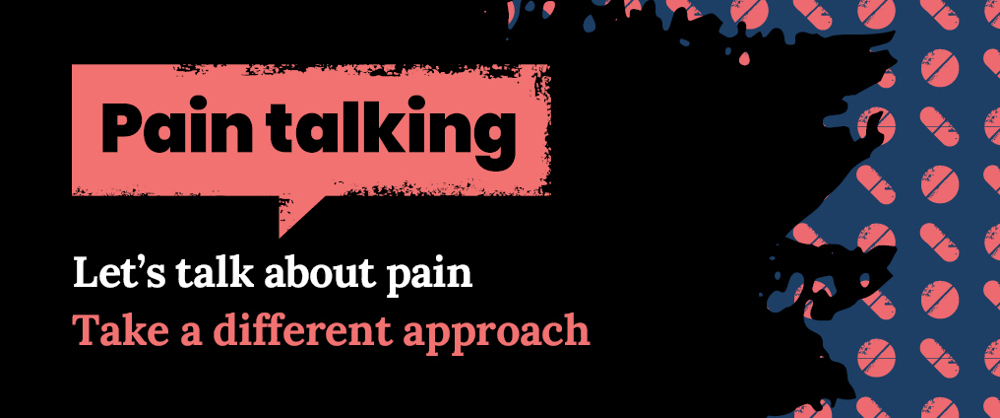
This information has been developed to supplement the information the doctor or healthcare practitioner has already given you.
Date of Issue: March 2025
Review Date: March 2026
If the review date has passed, the content will apply until the next version is published.
Gabapentin can be used for neuropathic (nerve) pain but is not recommended for other types of pain. It is also used to treat epilepsy.
Neuropathic pain is caused by nerve damage and is often described as burning, shooting, electric shocks, or pins and needles. The pain can be there all the time, or it can come and go.
Not everyone will benefit from gabapentin, and some people may experience side effects. You should understand the risks before deciding to trial treatment. The goal of treatment is to improve function and quality of life. It should be stopped gradually if it is not helping or causes problems.
Gabapentin can be misused and cause harm. It is a controlled drug, subject to extra regulations and prescriptions are typically limited to 30 days.
How to take gabapentin
Gabapentin dosage varies from person to person. Know your prescribed dose and never take more than recommended. Aim to take the lowest effective dose.
A lower dose is recommended for older adults, individuals with kidney or respiratory issues, or when prescribed along with certain other medicines.
Gabapentin should be taken regularly as prescribed. The dose is increased slowly to help avoid side effects. Most people will be advised to increase the number of capsules taken each week, until their dose is reached. It can take several weeks to get the full benefit.
How long should I take gabapentin for?
Regular review is needed to check for benefit and unwanted effects. This should be every few weeks when starting. When taken for a long time gabapentin may not work as well or may no longer be needed. Ongoing review is recommended at least every 12 months.
Dependence and withdrawal
Gabapentin can cause tolerance, dependence, and addiction. This risk increases with long-term use or if similar issues with other drugs, alcohol, or nicotine. Speak to your doctor or pharmacist if you have any concerns.
Do not stop gabapentin suddenly, as this may cause withdrawal symptoms. Reducing the dose slowly can stop this happening. Your doctor or pharmacist can help with tapering the dose.
Are there any side effects?
All medications can cause side effects. Not everyone will get them. The patient information sheet supplied with your prescription has more information.
Common side effects include: drowsiness, dizziness, muscle fatigue, and tremor. These usually resolve after a few days.
If gabapentin makes you drowsy, avoid driving or operating machinery. This might be worse when you start the medication or increasing the dose. Alcohol can increase side effects and should be avoided. It is a criminal offence to drive whilst unsafe.
Less common side effects include: visual disturbance, appetite or weight changes, memory problems, mood changes or hallucinations, and rash.
If you experience side effects contact your doctor, pharmacist, or pain specialist for advice. If you experience any trouble breathing or are taking shallow breaths, seek urgent medical help.
Let your doctor know if
You are planning a pregnancy or become pregnant during treatment.
Gabapentin should be avoided in pregnancy, unless the benefit outweighs any risk. It is recommended to use contraception while taking gabapentin.
Medication in chronic pain
Medicines are not always helpful for long term pain.
They can cause side effects and harm.
It is best to stop medicines that are not working or cause problems.
It is helpful to find other ways of managing pain.
A doctor or pharmacist can explain more.
Remember
Do not stop medicines suddenly.
Do not share medicines.
Never take more medicine than prescribed.
Let your doctor or pharmacist know if you take other
medicines or products.
Read the information sheet for each medicine.
Keep medicines out of the reach of children.
Store medicines safely.
Return unused medicines to your pharmacy.
If medicines make you drowsy, do not drive.
Discuss any medication concerns with your doctor or pharmacist.
Weekly method of increasing the dose of gabapentin
Increase the number of capsules taken as below.
Do not take more than prescribed.
If you get side-effects, do not continue increasing the dose.
|
Week |
Capsule Strength |
Number of capsules |
Total daily dose |
||
|
8am |
2pm |
10pm |
|||
|
1 |
300mg |
0 |
0 |
1 |
300mg |
|
2 |
300mg |
1 |
0 |
1 |
600mg |
|
3 |
300mg |
1 |
1 |
1 |
900mg |
|
Review recommended before further increase |
|||||
|
4 |
300mg |
1 |
1 |
2 |
1200mg |
|
5 |
300mg |
2 |
1 |
2 |
1500mg |
|
6 |
300mg |
2 |
2 |
2 |
1800mg |
|
Continue on this dose. Review required. Do not increase the dose further before discussion and agreement with the doctor, pharmacist or pain specialist. |
|||||
Accessible formats
If you require this information in a community language or alternative format such as Braille, audio, large print, BSL, or Easy Read, please contact the Equality and Human Rights Team at: email: fife.EqualityandHumanRights@nhs.scot or phone 01592 729130. For people with a hearing or verbal impairment you can also contact the team through the NHS Fife SMS text service number on 07805800005.
